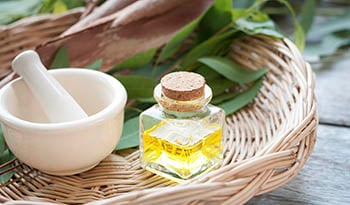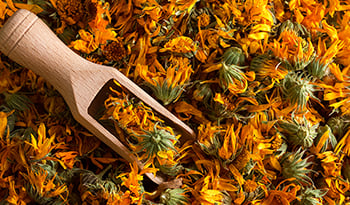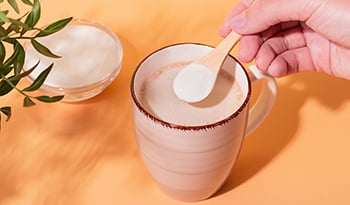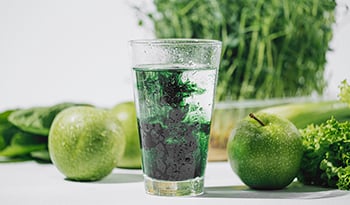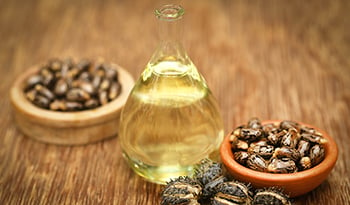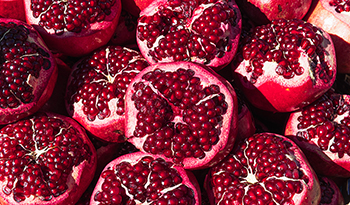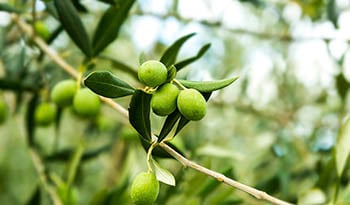Healthy Baby Skin Tips
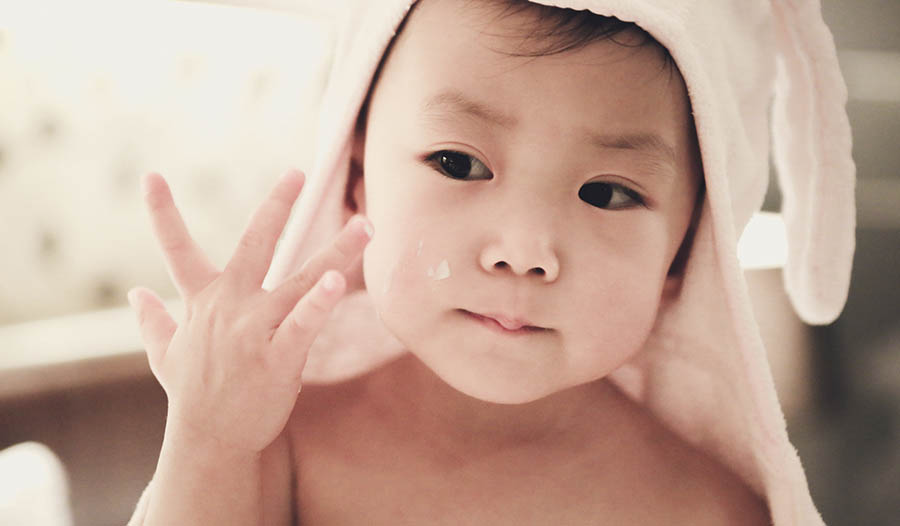
What is Eczema?
Eczema, or atopic dermatitis, is a very common skin condition affecting both adults and children. It is characterized by red, itchy and scratchy patches of skin. It more commonly affects children but can affect adults as well. This is a chronic condition, but it does tend to flare up periodically, especially if aggravated by certain environmental factors, food types or other variables. At this time, there is no cure for eczema, but there are many treatment options that can help alleviate itching and prevent further outbreaks.
Eczema Symptoms
Symptoms of eczema may vary from red, itchy skin, and the condition can appear slightly different from person to person. Some people experience dry skin; patches of skin that look red, brown or gray; raised bumps that leak fluid when scratched; or cracked or thickened skin.
Eczema patches can be found on the hands, feet, ankles, wrists, neck, eyelids, the inside bends of elbows and knees; in infants, eczema is commonly found on the face and scalp. Eczema can be aggravated seasonally as well. Symptoms are often more severe in the dry, cold air of winter rather than the warm, humid days of summer. Running a household humidifier during winter may help prevent flare-ups.
Causes of Eczema
Eczema is caused by a gene variation that changes the skin's ability to appropriately protect itself. Healthy skin is able to hold in water and protect the body from bacteria and other irritants. Eczema is the result of the body having an overactive response when the immune system is triggered. Eczema is more commonly noted to occur in families that have a history of hay allergies or asthma, which supports the diagnosis that eczema is a response to the body's immune system being triggered. Eczema is not contagious to other children or adults.
Eczema in Children
Around 20 percent of infants are diagnosed with eczema, and many of them outgrow the condition by age 2. Complications of eczema can include asthma and hay fever, especially in children younger than 13, skin infections, poor sleeping quality due to itching and other chronic skin concerns.
The red, tender, scaly and even crusty or oozing skin affected by eczema is particularly uncomfortable for children, so the following triggers should be avoided as much as possible. The rash can be triggered or made worse by allergic reactions to a substance, like pollen or cigarette smoke, or it can be made worse by the child's diet or even the mother's diet if the infant is breastfeeding.
Not all types of eczema have flare-ups like this, however. Some are simply an immune response to the infant's environment. Flare-ups in eczema can be caused by heat, some chemicals in soaps, changes in temperature or even stress.
5 Ways to Treat Your Child’s Eczema
Take Your Child to See Their Pediatrician
If a child seems to have eczema or is suffering from similar symptoms, the child should first be taken to their pediatrician to be looked over and receive a doctor's recommendations. Diaper rash is occasionally mistaken for eczema, so it's best not to assume anything without a doctor's opinion.
Daily Bathing
Experts and doctors recommend daily bathing as an easy way to help soothe eczema rashes and symptoms. Hot water should not be used as it actually dries out the skin more. Here are two types of homemade baths to help alleviate your child’s symptoms.
Salt Bath
For a salt bath, prepare a warm tub of water. Add about ⅛ cup of salt for a baby bath or 1 cup of salt for a half bath to accommodate an older child. Let your baby soak in the warm salt bath for 10 to 20 minutes then remove your baby and pat dry. Immediately apply an eczema cream or lotion. This process should be done daily because salt baths take up to 10 days to make a difference to your child’s skin.
Oatmeal Bath
Blend ⅓ cup of oatmeal (unflavored instant, quick oats or slow cooking) on the highest setting in your food processor or blender until you have a very fine consistent powder. Pour homemade oatmeal into a tub of running water and stir the water with your hand to ensure even distribution.
Allow your child to soak in the tub for 15 to 20 minutes. After time’s up, remove your child and pat their skin with a soft towel. An oatmeal bath can be given once or twice a day. There are also ready-to-use oatmeal baths available. Just like the salt bath, immediately apply an eczema cream or lotion.
Cotton and Natural Fabrics are Recommended for Clothing
A child's skin may be irritated by certain fabrics. Cotton and other natural fabrics are recommended for clothing as well as soft sheets and linens. Fabric softeners and detergents should also be considered as a potential source of irritation. Hypoallergenic and fragrance-free laundry products are recommended.
Use Cotton Mitts or Socks for Baby’s Hands
If the baby cannot resist scratching or itching while sleeping, cotton mitts or socks can be placed over the baby's hands to keep them from damaging their skin too much. Cool compresses may be applied during a flare-up with moisturizer to reduce itchiness.
Get Baby Checked for Food Allergies
If the child is still experiencing flare-ups and many changes to their environment have already been made, it may be time to consider that he or she is sensitive to allergenic foods. The child's doctor would be able to recommend if their diet could be to blame for the flare-ups.
Most commonly, children have diet sensitivities to cow's milk, eggs, soy, wheat, peanuts and fish. Food should be eliminated one at a time from the child's and mother's diet, if breastfeeding, to see which may make a positive impact on the child's eczema symptoms.
Babies who suffer from eczema may benefit from switching to a hypoallergenic formula diet but should not switch to a soy-based formula due to the potential for allergens. A food diary can be a very helpful tool when determining what foods a child may be sensitive to. A daily report of what they ate and how their skin reacts in the next few days can help determine causes of flare-ups and what to avoid.
Homemade Eczema Cream
Many parents and experts recommend a homemade eczema cream or bath soak to help treat particularly stubborn rashes or an aggressive flare-up with natural ingredients.
Listed below is a popular homemade natural eczema cream safe for children. It requires a double boiler, a mason jar and a hand mixer.
Ingredients:
- 1/2 cup pure shea butter
- 1/2 cup coconut oil
- 1 Tbs. raw organic honey
- 40 drops of lavender essential oil
- 5-10 drops of tea tree essential oil
Instructions:
- First, use a double boiler to melt down the shea butter and coconut oil until they are smooth and easily combined.
- Next, the honey should be added and given time to melt. When all the ingredients are liquid and mixed, add the lavender and tea tree oils to the mixture to combine.
- The mixture will solidify at room temperature or faster if placed in a refrigerator to cool. The solution, once hardened a bit, should then be hand mixed until it becomes a smooth cream that can be applied by hand. It can be transferred into the glass mason jar for storage at room temperature.
Use the mixture sparingly and in small amounts at first to determine any skin sensitivities. Shea butter and coconut oil are great moisturizers, and coconut oil has a lot of Vitamin E for healing. Honey has natural antibacterial properties. Lavender and tea tree oil have healing properties and help soothe itchy skin.
DISCLAIMER:This Wellness Hub does not intend to provide diagnosis...















































































 Table of Contents
Table of Contents





